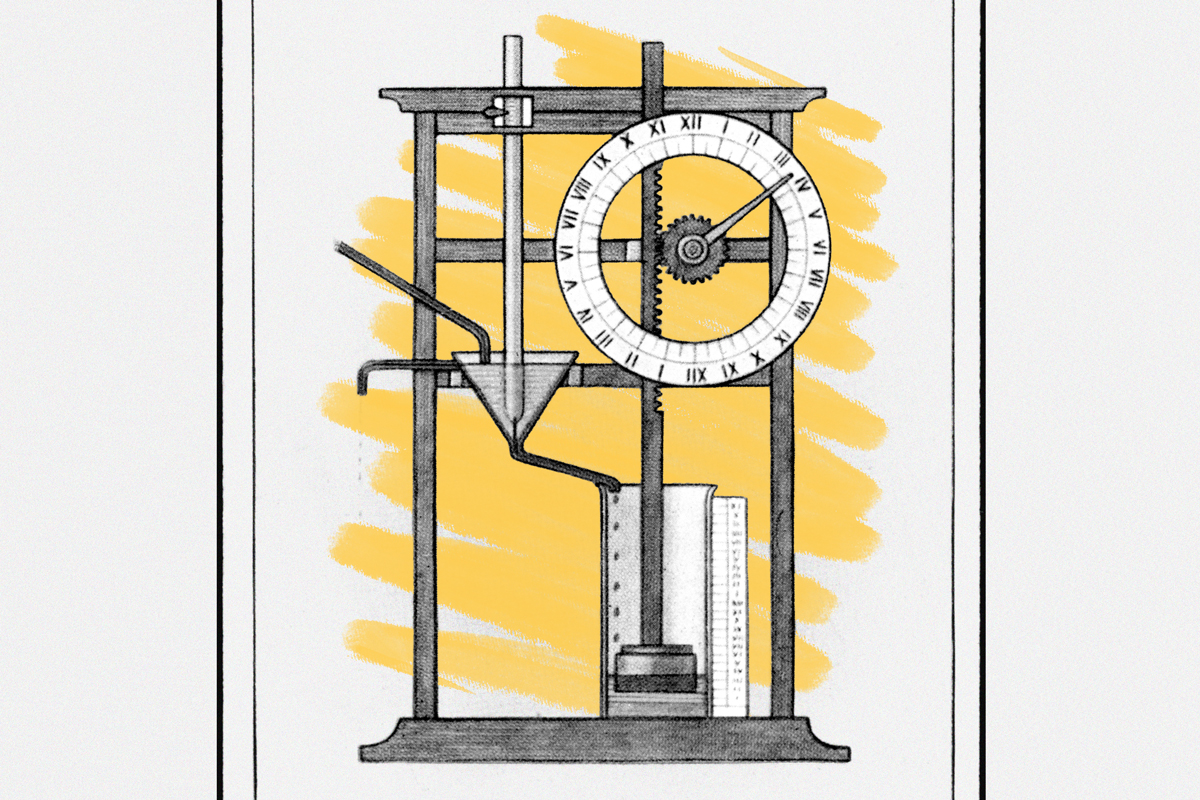Ancient Greeks invented an alarm clock that used flowing water.
Thousands of years before mechanical timepieces existed, as far back as the 16th century BCE, water clocks were among the most accurate ways to tell time. These early clocks controlled the flow of water from one container to another in order to measure the passage of time with remarkable precision — and unlike sundials, they could be used at night. Civilizations all over the world used water clocks, but the ancient Greeks in particular were known for improving the mechanism with a timepiece they called “klepsydra,” or “water thief.”
The philosopher Plato is credited with one particularly ahead-of-its-time innovation: In the fourth century BCE, he built a set of klepsydra alarm clocks meant to rouse the students at his academy. The clocks had two basins, one emptying into the other, and would run throughout the night. When the second basin filled with water in the morning, it would trigger a sound. One of the clocks had a container that made a whistling sound when air was forced out of it. Another had pebbles rigged over the second tank that would fall and rattle when it was full. Aristotle was a student at Plato’s academy, so it’s possible he was roused by these very clocks. In the third century BCE, Greek inventor Ctesibius of Alexandria took the design a step further. He added a top tank with an overflow valve that allowed a lower tank to rise to keep time, making little noises on the way up like a cuckoo clock.









